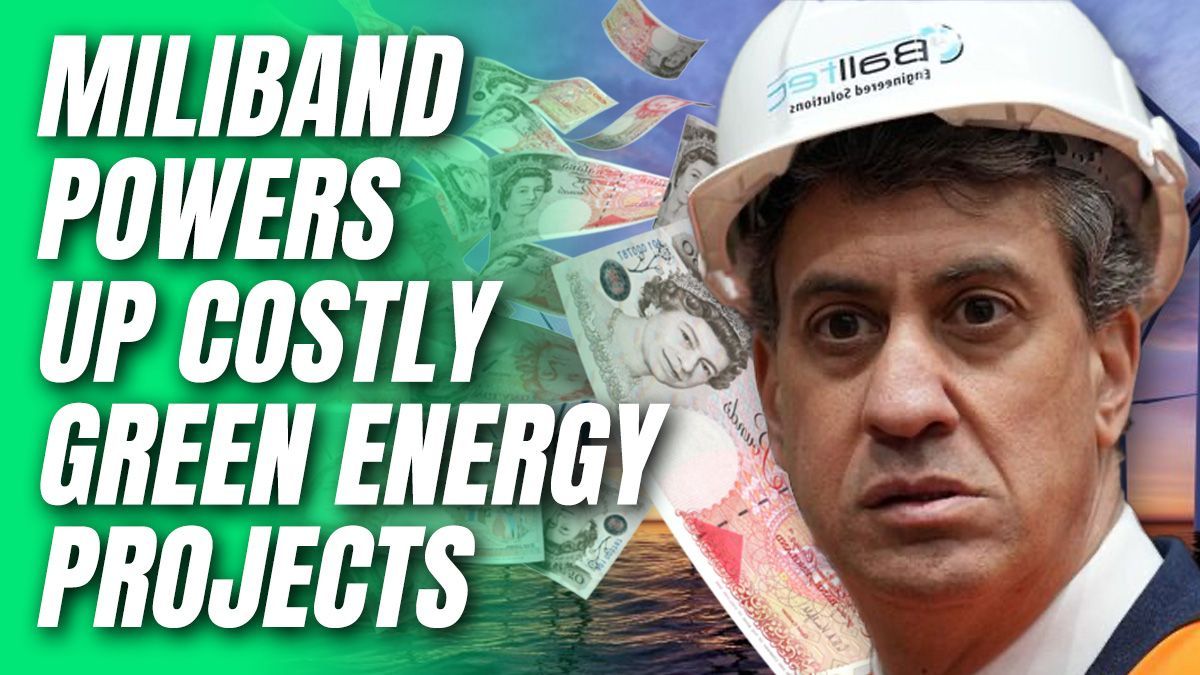Guido Fawkes' Critique: The New Direction Of Energy Policy

Table of Contents
Fawkes' Core Arguments Against the Current Energy Policy
Guido Fawkes, known for his outspoken commentary on British politics, has leveled significant criticism against the UK's newly adopted energy policy. His main arguments revolve around concerns about reliability, affordability, and long-term strategic planning. He argues that the current policy prioritizes politically expedient, but ultimately unreliable, sources of energy over those offering greater security and stability.
-
Insufficient investment in reliable energy sources: Fawkes highlights the perceived underinvestment in nuclear energy, a consistent and high-output power source, in favor of intermittent renewables. He argues this creates a vulnerability in the energy grid, leaving the UK susceptible to energy shortages during periods of low wind or sunshine. He often points to specific government spending figures to support this claim.
-
Over-reliance on intermittent renewables like wind and solar: Fawkes criticizes the heavy emphasis on wind and solar power, citing their inherent intermittency and dependence on weather conditions. This, he argues, undermines energy security and necessitates expensive backup systems, increasing overall energy costs. He often uses examples of periods of low renewable energy generation to highlight this point.
-
Failure to address energy security concerns: A central theme in Fawkes' critique is the perceived lack of a robust strategy to ensure the UK's energy independence. He argues that over-reliance on imported energy sources and insufficient investment in domestic production leaves the UK vulnerable to geopolitical instability and price fluctuations in the global energy market.
-
Impact on energy affordability for consumers: Fawkes directly connects the policy's emphasis on renewables and lack of reliable baseload power to rising energy bills for consumers. He often highlights the disproportionate impact on low-income households. He often cites specific examples of rising energy prices linked to policy decisions.
-
Lack of a clear long-term strategy: Fawkes argues that the current energy policy lacks a cohesive long-term vision, leading to short-sighted decisions that fail to address the nation's long-term energy needs. He criticizes the perceived lack of a comprehensive plan to ensure a secure and affordable energy supply for future generations.
Analysis of the Economic Implications of the New Energy Policy
The economic consequences of the UK's new energy policy, as highlighted by Fawkes' critique, are potentially severe. The shift towards renewable energy sources, while aiming for environmental benefits, has significant economic ramifications.
-
Impact on energy prices for businesses and households: Increased reliance on intermittent renewables, coupled with the need for backup power, is driving up energy prices. This affects businesses' competitiveness and household budgets, potentially leading to reduced economic activity and social inequality.
-
Effect on energy-intensive industries: Industries heavily reliant on energy, such as manufacturing and heavy industry, are particularly vulnerable to rising energy costs. This can lead to reduced production, job losses, and decreased competitiveness in the global market.
-
Potential job creation and losses in different sectors: While the renewable energy sector is creating jobs, the transition away from traditional energy sources could lead to job losses in other sectors. Fawkes often highlights the need for a just transition to ensure workers are not left behind.
-
Influence on foreign investment in the UK energy sector: The perceived uncertainty and instability created by the current energy policy could deter foreign investment in the UK energy sector. This could hinder the development of new energy infrastructure and technologies.
Environmental Considerations and Fawkes' Perspective
While the new energy policy aims to reduce carbon emissions and promote environmental sustainability, Fawkes raises concerns about its effectiveness and potential unintended consequences.
-
Discussion on the role of renewables in reducing carbon emissions: Fawkes acknowledges the role of renewables in reducing reliance on fossil fuels. However, he questions their overall effectiveness in achieving significant carbon emission reductions given their intermittency and dependence on backup power generation.
-
Evaluation of the environmental impact of nuclear energy: Fawkes often advocates for a greater role of nuclear energy in the UK’s energy mix, citing its low carbon emissions and high energy density. He argues against the dismissal of nuclear power based on environmental concerns often focused on waste disposal.
-
Assessment of the policy's overall contribution to environmental sustainability: Fawkes suggests that the current policy, while well-intentioned, may not achieve its environmental goals efficiently or effectively due to reliance on intermittent renewables and a lack of sufficient baseload power.
-
Potential drawbacks or unintended environmental consequences: He points to potential unintended environmental consequences of large-scale renewable energy projects, such as land use changes and habitat disruption.
Comparing the UK's Policy with Other Nations' Energy Strategies
The UK’s energy policy can be compared to those of other nations, both successful and unsuccessful, offering lessons for improvement.
-
Examples of countries with effective energy policies: Countries like France, with its strong nuclear power program, and some Nordic nations with successful integrations of hydro and other renewables, provide examples of alternative strategies.
-
Lessons learned from countries with ineffective energy policies: Countries that have struggled with energy security and affordability issues due to over-reliance on specific energy sources offer cautionary tales.
-
Areas where the UK could improve its energy strategy: A more diversified energy mix, greater investment in energy storage solutions, and clearer long-term planning are areas where the UK could benefit from learning from other countries' successes and failures.
Conclusion
Guido Fawkes' critique of the UK's new energy policy highlights significant concerns about energy security, economic impact, and environmental sustainability. His arguments raise important questions regarding the balance between renewable energy sources and reliable baseload power, the affordability of the transition, and the overall effectiveness of the policy in achieving its stated goals. The analysis emphasizes the need for a comprehensive, long-term strategy that considers all aspects of energy production and consumption.
What is your take on the new direction of UK energy policy, considering Guido Fawkes' critical analysis? Further research into the details of the policy, alongside a critical examination of Fawkes' arguments and other perspectives, is encouraged to form an informed opinion on this crucial aspect of the UK's future.

Featured Posts
-
 Bhth Tezyz Alteawn Altjary Byn Alsewdyt Wadhrbyjan
May 03, 2025
Bhth Tezyz Alteawn Altjary Byn Alsewdyt Wadhrbyjan
May 03, 2025 -
 Christina Aguilera Fans Question Her Recent Appearance
May 03, 2025
Christina Aguilera Fans Question Her Recent Appearance
May 03, 2025 -
 2024s Underappreciated Game A Ps Plus Surprise
May 03, 2025
2024s Underappreciated Game A Ps Plus Surprise
May 03, 2025 -
 Troubleshooting Fortnite Matchmaking Error 1 A Power Up Gaming Guide
May 03, 2025
Troubleshooting Fortnite Matchmaking Error 1 A Power Up Gaming Guide
May 03, 2025 -
 Blue Origin Postpones Launch Investigation Into Vehicle Subsystem
May 03, 2025
Blue Origin Postpones Launch Investigation Into Vehicle Subsystem
May 03, 2025
